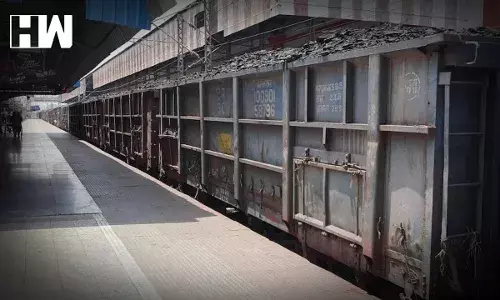New Delhi: The railway ministry has cancelled 753 journeys to provide priority routes for coal wagons and faster turnaround amid the rapid surge in power demand and the resulting greatest electricity shortfall in more than six years. Mail, express, and passenger services are among them. According to an Indian Railways representative, the trips are expected to be halted for a period of up to ten days.
A total of 533 coal rakes have been put on duty to aid the supply.
On Wednesday, 427 rakes were loaded with 1.62 million tonnes of coal for the power sector, reported ANI.
The rise in power demand, along with the country’s high heat, has left most Indian states with inadequate coal supplies, which is the country’s primary fuel for electricity generation. Consumers in Jammu and Kashmir and Andhra Pradesh are experiencing power outages ranging from 2 to 8 hours.
Most states are experiencing extreme heatwaves, with MET projections predicting that temperatures in Delhi might reach 46 degrees Celsius, driving up coal demand even more.
With the number of power outages on the rise, April’s shortages may outnumber the severe cuts enacted in January 2016 during a prior power outage.
Peak-electricity demand in India jumped to a record high on Thursday and is expected to rise by as much as 8% next month, according to the power ministry. Coal supplies are at their lowest pre-summer levels in at least nine years, while peak-power demand in India rose to a record high on Thursday. According to Reuters, electricity supplies fell short of demand by 1.88 billion units, or 1.6 percent, in the first 27 days of April.
The unexpected increase in coal consumption is due to rising electrical demand, which has led Indian Railways to cancel long-distance mail, express, and passenger trains on a regular basis in recent weeks to make room for coal-carrying rakes.
As an independent media platform, we do not take advertisements from governments and corporate houses. It is you, our readers, who have supported us on our journey to do honest and unbiased journalism. Please contribute, so that we can continue to do the same in future.

